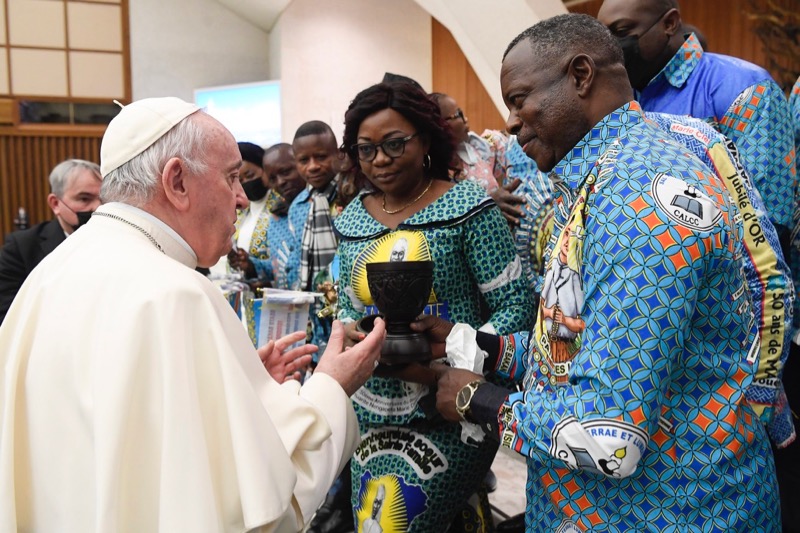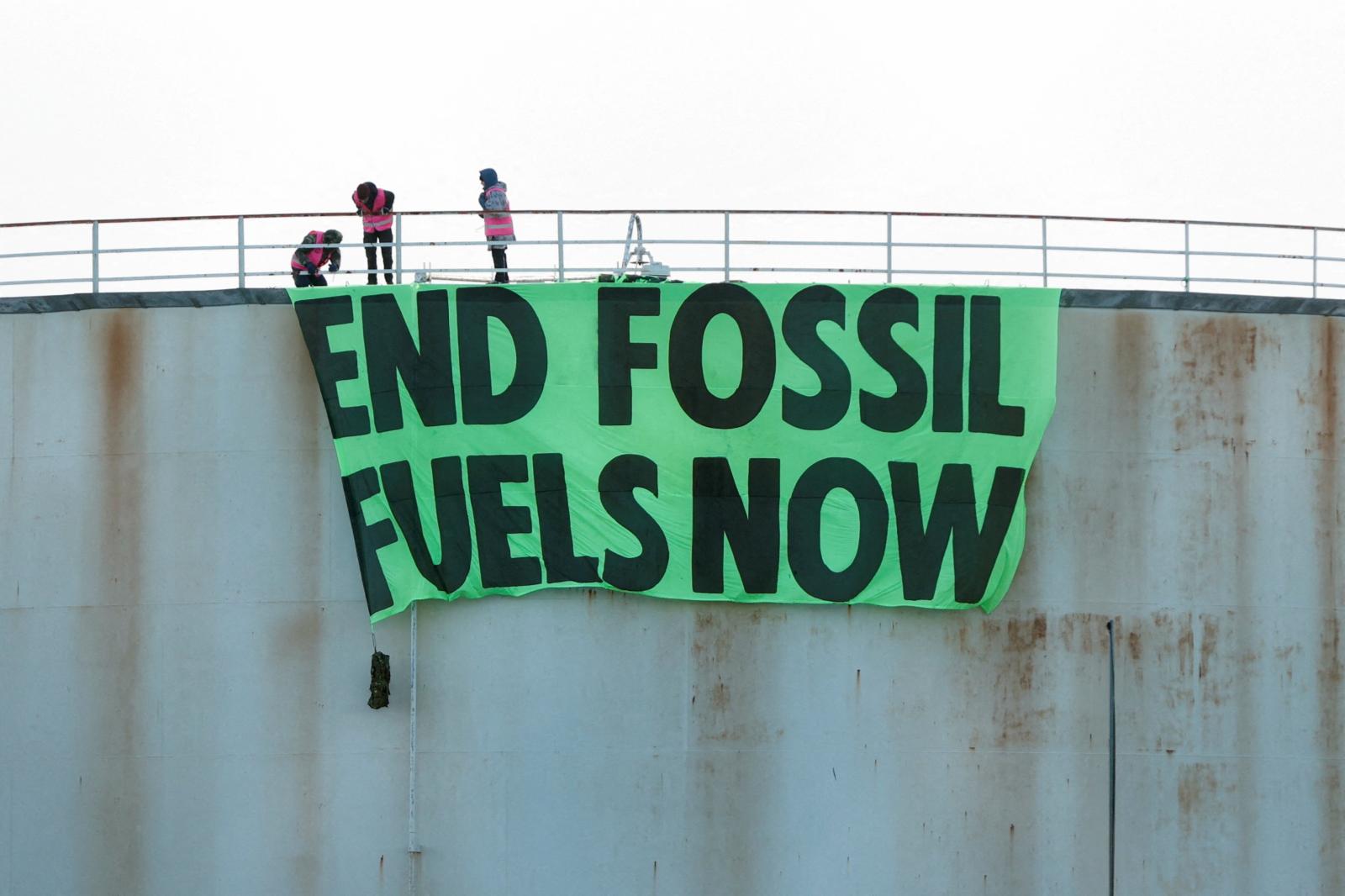I don’t have time to write this article. I am submerged under a snowdrift of undergraduate marking, overdue corrections on a book manuscript, labouring through a PhD thesis I will soon be examining, catching up with a mountain of overdue emails from the Easter term, and trying perhaps one day before the second coming to have some time off. But it turns out that the deeper truth is that there is no time not to write this.
I don’t watch television, but a friend sent me the link to Monday’s interview with the Just Stop Oil protester Miranda Whelehan on ITV’s Good Morning Britain. He warned me that it was a tough watch. When you have been exposed to the reporting of imminent catastrophe for a long time, you feel yourself at least partially immunised to shock and disbelief. Not immunised enough, it turns out.
Watching the interview turned out to be an almost out-of-body experience. As many have now noticed, it eerily resembled Don’t Look Up, the recent Hollywood satire about the climate crisis in which scientists try to convince politicians and media to pay attention to the fact they have just uncovered: namely, that a giant meteor is on a collision course with the earth, shortly to kill us all. The spectacle of collective denial, brilliantly portrayed, starts out funny. Half way through, it has become painful. By the end, it is simply tragic.
Watching ITV’s interview was like that, but worse. What made Don’t Look Up an overall bearable experience was that one could step out of the cinema at the end and remember that we don’t actually live in an insane world. But the last couple of decades have treated us to an agonising spectacle of collective denial which defies rationalisation. The entirely real ITV interview was only a vivid, condensed version of what we have all been living through: the slowly dawning realisation that we do live in a world that is at least partially insane.
Miranda Whelehan had to endure being told by presenter Richard Madeley that Just Stop Oil is “a childish slogan”. Whehelan repeated what the UN Secretary-General said: further fossil fuel extraction is just not compatible with having a habitable planet. “It’s complicated,” said Madeley. Complicated? What is complicated about the UN Secretary-General’s comment on the last IPCC report: “Delay means death”?
The censure of Conservative financier and environmentalist Ben Goldsmith for his support of XR and Just Stop Oil is an equally baffling testament to the incapacity of our political and media establishment to acknowledge what is happening. The Telegraph, The Evening Standard and others are indignant that he could dare to support protesters who are “disrupting people’s lives”. One can only wonder whether they think it the closure of Lambeth Bridge a worse disruption than vast swathes of humanity drowning, starving, burning, freezing, dying of thirst and losing their homes. These are consequences of not ‘stopping oil’.
Before Christmas I delivered the annual Hook Lecture in Leeds Minster. In the lecture, I sought to make sense of the fact that after forty years of knowing “the facts”, we have made extraordinarily little progress towards stopping climate change. This is particularly stark evidence of what any wider reflection on human history could easily teach us: human beings are not “rational” in the generally understood sense of that term. We should not go on reciting “the facts” as though that’s going to be enough to change people. It isn’t.
In the lecture I suggested some things we might do instead of reciting “the facts” which might be more effective. After hearing the lecture, I was contacted by Just Stop Oil. They wanted to explore collaboration in applying my proposals to their campaign. This cast me into something of a quandary. I don’t like conflict, or catastrophising, or scaring people. A consensus-builder by nature, I like people to agree, and get along, and talk through their differences peaceably and calmly. I prefer the seminar room to the law court. So I was, to put it mildly, uncomfortable about the rhetoric and tactics of civil resistance employed by XR and similar organisations.
But I have been working on these issues for years as an academic and public speaker, and I needed to think of a good reason why I shouldn’t offer my support. Over recent weeks, I searched again and again for such reasons. I found that there are none.
I asked everyone I know what they think we should do about the climate crisis, to make sure I was not missing something. It became apparent that most of us are still in denial. Those who are not in denial are in despair. And no-one has a good argument as to why the protesters are wrong. The most anyone can muster by way of an argument are lame comments about “disruption” to people’s lives.
It defies credibility that anyone can take this argument seriously. Do they think that a few people sitting on top of oil tankers is a worse disruption than climate change? Do they think that we have any more urgent and important task than saving our planetary future? The war in Ukraine, the cost of living emergency and other immediate crises are desperately important. But hearing these issues given as reasons for ignoring the climate emergency is like hearing the Captain of the Titanic say that he can’t go to the helm right now because he’s busy changing a lightbulb.
Criticisms of the protests have a lingering air of madness. These protests represent “disruption” only in the sense the Titanic’s captain is disrupted by the alarm call when the iceberg appears.
A society which has so spectacularly failed to heed the message coming out of the UN about the climate future is a society in which the sane minority have only civil resistance left to them. Civil resistance is indeed a politics of desperation. That kind of politics is never justified – except when the times are desperate. In the wake of the last two IPCC reports, it is impossible to understand how anyone could disagree that they are.
This is a code red for humanity, said Secretary-General Gutierrez. Circumstances more justifying of acts of civil resistance can hardly be imagined. After weeks of thinking about it, I could find no good reason not to support Just Stop Oil. I was forced to conclude that my hesitation was really caused by cowardice. So I will stick my neck out: the protesters are in the right. The media and political establishment which condemns them is living in a fantasy land.
There were few enough lifeboats on the Titanic. But there are absolutely none on planet earth. If our leaders want the protests to stop, let them step up the helm before the iceberg rips into the hull. Until they do, we should be glad that at least some people in our society have the courage to risk their lives so that the rest of us will notice that we are about to walk off a cliff.



 Loading ...
Loading ...
What do you think?
You can post as a subscriber user ...
User comments (2)
At 20 years old we are already hearing from Miranda Whelehan taking on the demon of superficiality manifested in ITV GMB. Young people putting their future on the line makes visible the gravity of our situation whilst offering a means to meet it and a reason why it matters to do so – and, as you say, it has never mattered more than now.
Comments about disruption to people are indeed lame against the bigger picture you set out. Nonviolence can also meet your reluctance. True that many “activists” are fired by anger at injustice. But it is for the beauty of nonviolence and the courage of its lineage that I’m able to take action with my knees knocking. Kneeling in prayer helps too.
Rowan Tilly
At 20 years old we are already hearing from Miranda Whelehan taking on the demon of superficiality manifested in ITV GMB. Young people putting their future on the line makes visible the gravity of our situation whilst offering a means to meet it and a reason why it matters to do so – and, as you say, it has never mattered more than now.
Comments about disruption to people are indeed lame against the bigger picture you set out. Nonviolence can also meet your reluctance. True that many “activists” are fired by anger at injustice. But it is for the beauty of nonviolence and the courage of its lineage that I’m able to take action with my knees knocking. Kneeling in prayer helps too.
Rowan Tilly